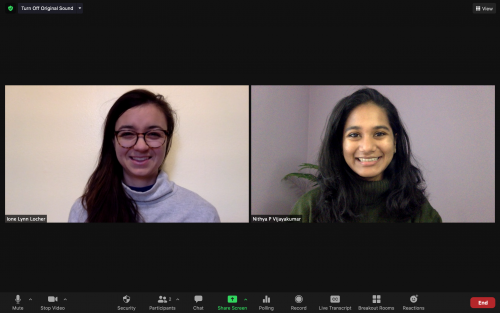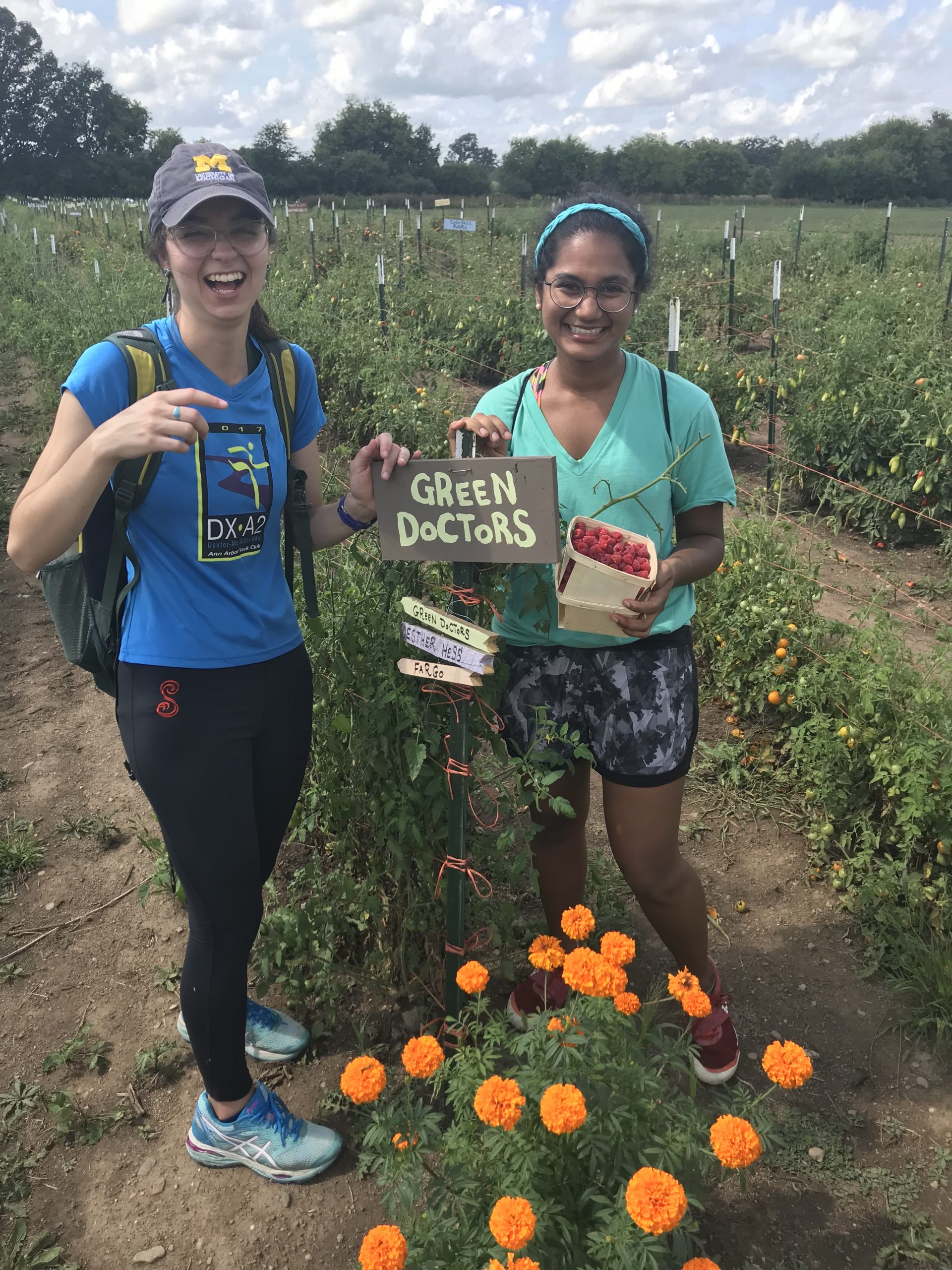If you had asked us four years ago when we were in the early years of medical school at the University of Michigan, we both would have confidently said that we expected to be traveling across the country for our 4th year residency interviews.
Hang on, virtual interviews? What?????
We were definitely nervous about the abrupt change in plans, but together we spent hours perfecting our virtual interview strategies and have come up with a list of our favorite tips and tricks! Whether or not medical school and residency interviews will be virtual again remains to be seen, but personally, we can see the benefits. After all, a pair of comfy yoga pants and warm slippers is always going to be more comfortable than high heels and slacks, am I right?

Preparing for Your Interview
- Practice, practice, practice. Make a list of 30-40 possible interview questions — there are many of these lists online. Schedule a zoom appointment with a family member or friend to go through your questions, and ask for feedback about each answer! Approach these practice sessions as if they are the real deal.
- Use the STARR method! (If you don’t know what this is, look it up and read about it!) This method is literally so helpful, and not just for situation questions. Use the STARR method to explain why you chose your specialty or why you choose to go to medical school or even just to tell a story about yourself.
- Choose a nice potted plant, or a small painting or poster to put in your background. Otherwise, keep it simple. Boring does not equal bad when it comes to interview backgrounds. If this means you move your furniture around a bit, that’s ok!
- Lighting is everything! Well, not everything, but it can make a big difference. Consider where the sun will be with respect to your windows, and whether you’ll need to draw the shades. Move your amazing floor lamp from the living room to your interview room. If you want the flawless complexion of an Instagram star, consider investing in a ring light (or two if you want to go overboard like Ione haha).
- It sounds like minutiae, but spend a little bit of time thinking about whether you are going to wear glasses or contacts for your interviews (if you use these at all.) Try to position your lights so they don’t reflect off your glasses.
- Technology. Try wearing headphones with a built-in microphone if you are worried about a noisy environment or have a softer voice. If accessible, an ethernet cable can reduce any wifi-related stressors.
- Write down helpful notes or anecdotes that connect to important themes for you. Since interviewers can’t see your workspace, it’s very easy to keep your notes next to your computer, or even on your screen. When asked a tricky question, you can just glance at your notes to jog your memory before answering.
- Think about whether you have completed any visual projects that you would like to showcase during your interview. The nice thing about interviewing from home is that you can show off your work in a way you couldn’t at an in-person interview. So that cookbook you authored? Keep a copy on your desk. That workbook or patient educational material you created? Print it out and have it handy. A painting or piece of artwork you made? Why not??
- Don’t forget to think through your outfit. We recommend choosing a great pair of black yoga pants to go with a dark blazer. On camera, the black yoga pants look just like professional slacks. (To all the guys out there, don’t worry, there are yoga pants for you too if you want em!)
The Night Before the Interview
- You may find yourself making a spontaneous decision to go to Ulta and buy the cheapest curling iron they have. If it makes you feel like your best self, it’s totally worth it.
- Double check the start time and time zone of your interview, just to be sure.
- Give yourself enough time to sleep well.
Interview Day
- Time for your pre-interview PUMP UP Playlist! We recommend SUPERBLOOM, by the MisterWives.
- Get your pets, roommates, or family members situated for the interview. If you live with forgetful roommates or family members, just remind them when you’ll be interviewing and ask them not to knock on your door or do something REALLY loud during your interview. But if it does happen, remember that it happens to all of us from time to time, your interviewer included.
- Don’t be afraid to take pauses during the interview to think through your answers. It’s better to take a second or two to collect your thoughts before answering an unexpected question than to give a rambling answer that you’re figuring out as you’re saying it.
- YES, PLEASE DRINK WATER if you’re thirsty. Just leave a glass on your desk. No one wants you to feel dry during your interview!
- Put some snacks within reach in case you get hungry during those 5-10 minute breaks.
- Stretch, do some jumping jacks or yoga, or play with your pets during breaks. It can be helpful to step away from the screen and rest your eyes.
- Turn down your screen brightness if you notice your eyes are getting tired during the interview.
- Have fun! You will be meeting amazing physicians from all over the country, and many of them will be doing exactly the kind of work you want to do. Let yourself be inspired by them. Talk about networking!
- Life happens! If you encounter technical difficulties, take a breath and reach out to the program coordinator. Everyone is very understanding, and most programs have contingency plans in place.
- If they say they don’t need thank-you notes, believe them. Use that time to sleep, go outside, or spend time with people important to you. If they don’t say NOT to send thank-you notes…you probably should send those. If you can, use a template to draft your thank you notes right after your interview when you can still remember the details about who you interviewed with and what you talked about together.
Throughout the Season
- Know who’s on your team and celebrate every win, even the small ones!
- For Michigan students, feel comfortable reaching out to our AMAZING UMich alumni base for the inside scoop on your favorite residency programs. They will give you the low-down, and may even be able to offer comparisons of your favorite programs, from their experiences as residents, fellows, or through their own networks. If you find yourself entertaining an alum on their road trip with your numerous questions, remind yourself that you might be more interesting than the 15th episode of their podcast.
- Remember, residency is important, but it’s also your first job in what, if you’re lucky, will be a decades-long career. You will be an incredible physician, and you will always be enough. (And the same is true if you’re applying to medical school!)
Don’t miss the next Dose of Reality.

Ione and Nithya have been friends since M1 year, braving hot yoga classes, clinical clerkships, research years, and many of life’s big questions together. Now fourth years, Ione is applying into Family Medicine and Nithya is applying into Pediatrics.
